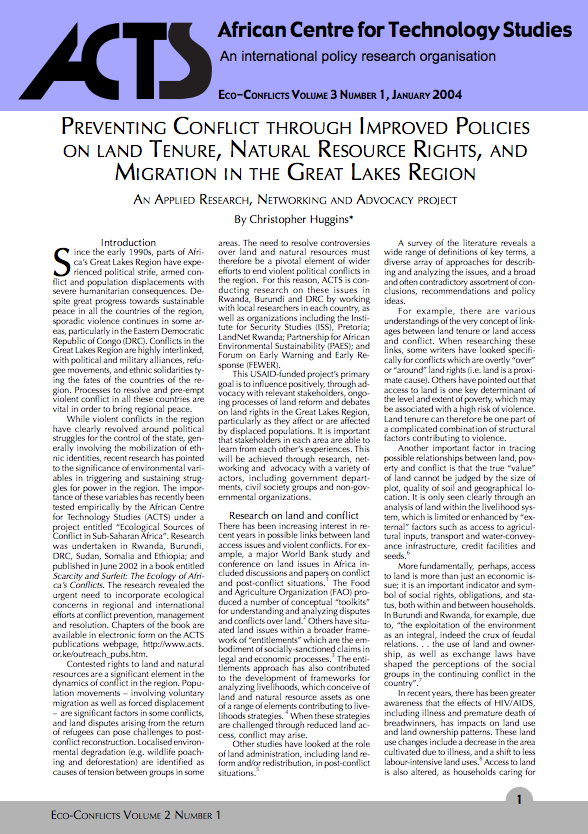Preventing Conflict through Improved Policies on Land Tenure, Natural Resource Rights, and Migration in the Great Lakes Region
Since the early 1990s, parts of Afri-ca’s Great Lakes Region have expe-rienced political strife, armed con-flict and population displacements withsevere humanitarian consequences. De-spite great progress towards sustainablepeace in all the countries of the region,sporadic violence continues in some ar-eas, particularly in the Eastern DemocraticRepublic of Congo (DRC). Conflicts in theGreat Lakes Region are highly interlinked,with political and military alliances, refu-gee movements, and ethnic solidarities ty-ing the fates of the countries of the re-gion.







